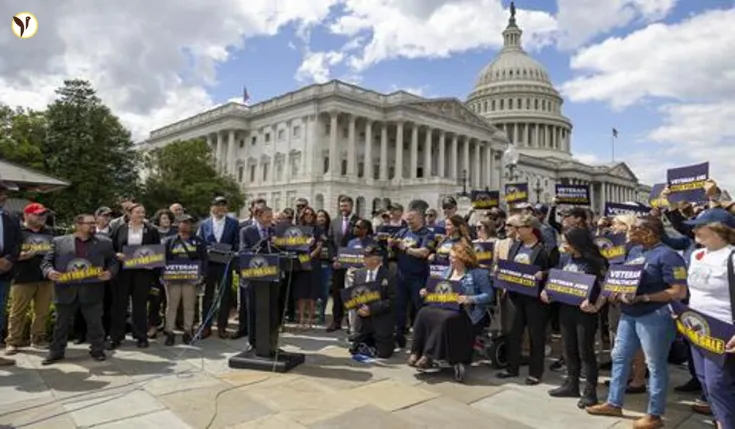Veterans' Benefits: A Rollercoaster Ride
Our veterans – they deserve the world, right? They've served our country, and their benefits are a lifeline. But lately, things have gotten…complicated. There's been a lot of talk about cuts, changes, and a whole lot of uncertainty. Let's dive in.
The Proposed Cuts: A Storm Brewing
Remember all the talk about the Trump administration's plans to cut 80,000 jobs from the VA? It caused a huge uproar. Secretary Doug Collins argued it was all about efficiency, streamlining things to free up money for healthcare and benefits. But critics, including many Democrats, saw it differently. They worried about longer wait times for appointments, delays in getting benefits, and a general drop in the quality of care. Honestly, who wouldn't be worried?
Democratic senators, like Richard Blumenthal and Maggie Hassan, were especially vocal. They pointed out that cutting that many support staff could cripple the system. Republicans on the Senate Veterans Affairs Committee agreed the VA needed fixing, but even they had doubts about cutting *that* many jobs. It felt like watching a slow-motion trainwreck.
The timing was especially awful. The PACT Act, which expanded benefits for veterans exposed to toxins, was just getting underway. Slashing the VA's workforce now? That seemed counterintuitive, to say the least. Secretary Collins insisted the cuts would target non-essential roles, but critics weren't buying it. Support staff are vital – they're the glue that holds everything together.
Good News for Survivors: A Three-Pronged Approach
Amidst the chaos, the VA announced some positive changes to survivor benefits. They unveiled a three-part plan to make things easier for families of deceased veterans. It aims to cut through the red tape and provide more support.
First, they're moving the Office of Survivors Assistance (OSA) back to the VA Secretary's office. This should make it more responsive and influential. Second, they're launching a "White-Glove" Survivor Outreach Team. Imagine a personal concierge for navigating the complex world of Dependency and Indemnity Compensation (DIC) claims. Third, they're automating more of the DIC claims process to speed things up.
These changes are a step in the right direction – showing compassion and aiming to provide help when it’s most needed.
A Small but Significant COLA Increase
On a separate note, veterans receiving VA disability compensation got a 2.5% cost-of-living adjustment (COLA) in 2025. That's something, at least. But inflation’s a beast, and a 2.5% increase may not fully cover the rising costs. This applies to disability compensation, DIC, clothing allowances, and other payments. Check your pay stubs!
Looking Ahead: Uncertainty Remains
The future of veterans' benefits is still uncertain. While there's some good news, concerns remain about the potential impact of those major job cuts. The improvements to survivor benefits are encouraging, but we need to keep a close eye on how things play out. Veterans need to stay informed, stay involved, and leverage their local veterans service organizations (VSOs) for support. Their voices and involvement are crucial.






